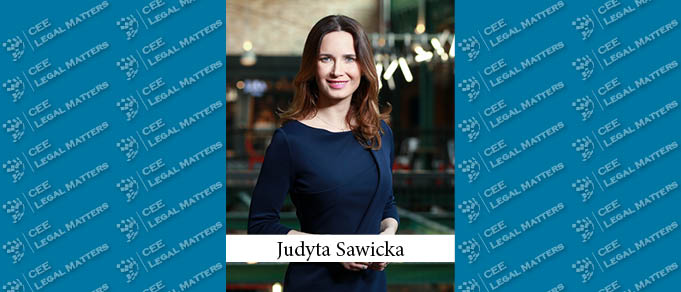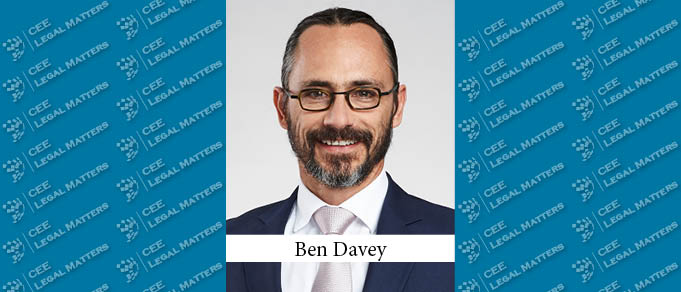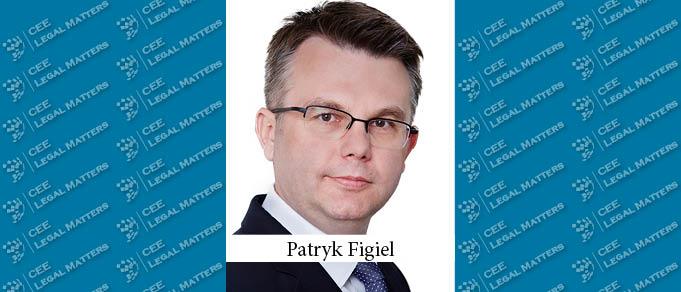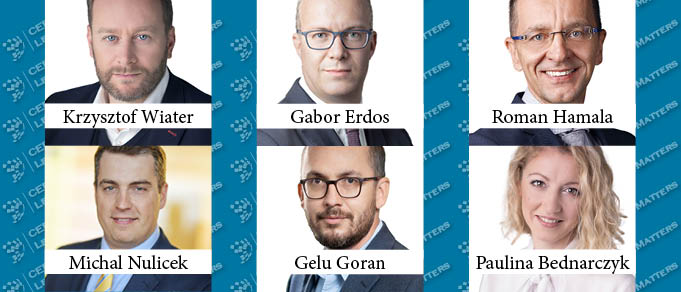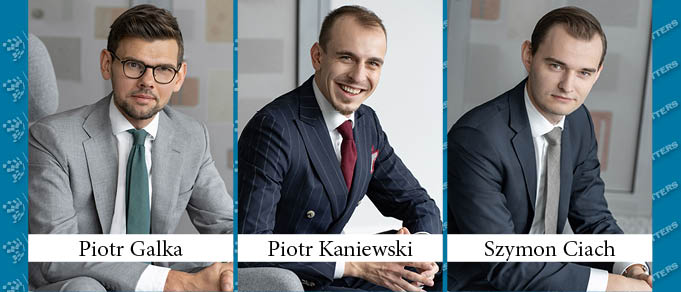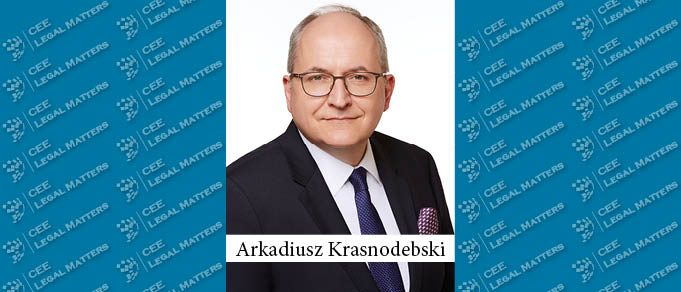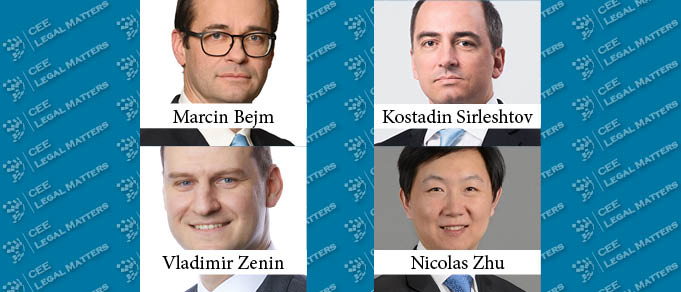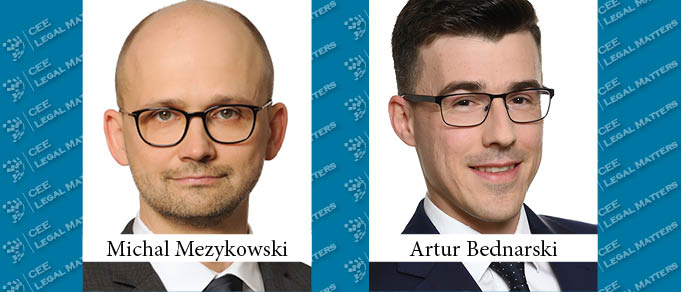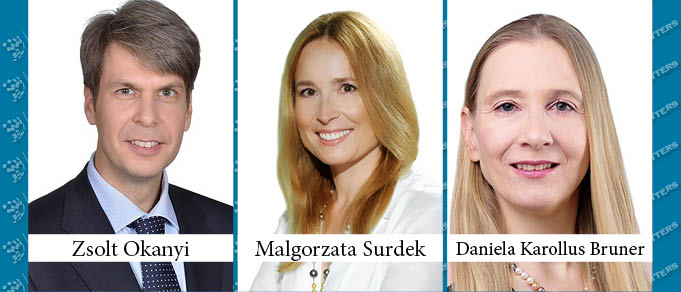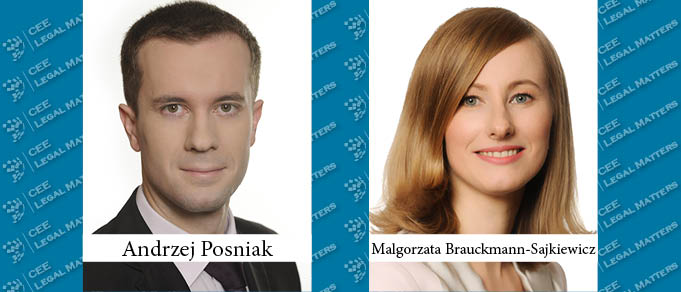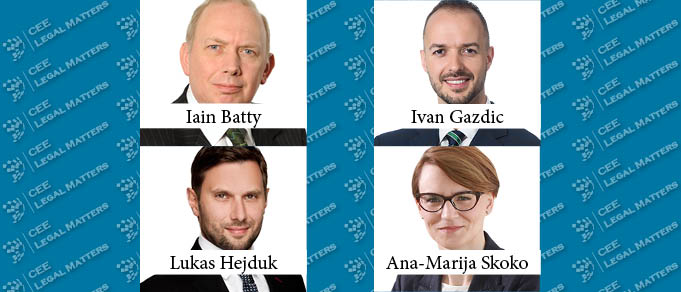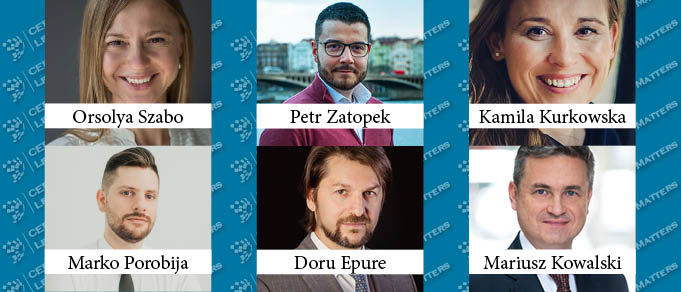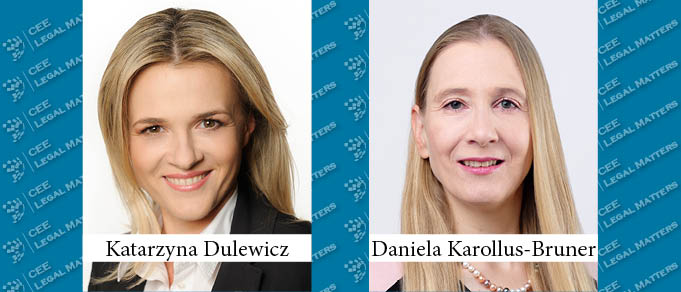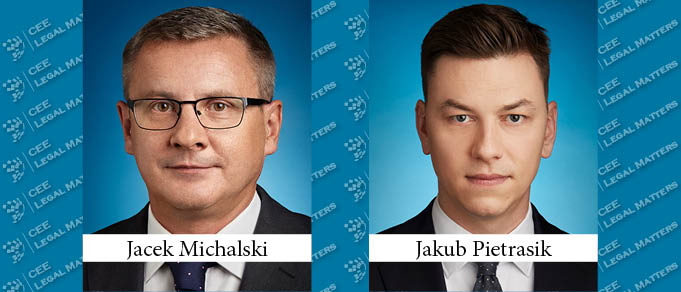Interview with Judyta Sawicka, Head of Legal at Globalworth about her background and best practices.
Expat On The Market: Ben Davey of WKB Wiercinski, Kwiecinski, Baehr
An interview with Ben Davey of WKB Wiercinski, Kwiecinski, Baehr, about his path from Australia to Poland.
Market Snapshot: Energy Transition and Digital Infrastructure – The Drivers of the Polish Legal Market
Energy transition and digital infrastructure are two areas in which clients are increasingly asking for advice in Poland – areas of the Polish economy which have thus far proved highly resilient to the COVID-19 pandemic.
Starting in Style: Interview with the Partners of the New NGL Symbio Alliance
Interview with the Partners of the New NGL Symbio Alliance.
The Cutting Edge: The Technology Team at Kochanski & Partners
Blockchain, Cloud Computing, and Artificial Intelligence are more than buzzwords – they are concepts critical to the rapid technological development occurring across all industries. We spoke to Partners Piotr Galka, Piotr Kaniewski, and Szymon Ciach in Kochanski & Partners’ Technology team to learn more.
Advising from Afar: Lawyering in a Time of Social Distancing
Within days of the coronavirus’s arrival in March, the Polish government was scrambling to react, with lockdowns, subsidies and stimulus, public health requirements, and other measures coming rapidly, on an ad hoc basis, with the need for speed making it difficult for Polish companies (and Poles in general) to keep up, and forming a patchwork of ideas rather than a comprehensive and coherent plan.
Guest Editorial: The Times They Are A-Changin’
The legal market in Europe is ever-changing, but now, as we approach the turn of the year, there is no doubt we are at a pivotal moment. One could say that the tide has risen and the world of legal services as we know it is gone. While it would be easy to blame everything on the pandemic, the COVID-19 crisis has merely accelerated certain processes that have been swelling up and ready to burst for quite some time. The trends we have been observing have just gained momentum. It is essential that law firms accept the challenges and prudently navigate the dangers.
The Chinese Belt and Road Initiative: Infrastructure Opportunities in CEE
The Chinese Belt and Road Initiative is one of the most ambitious development projects since the turn of the century. Through thousands of individual projects implemented under the BRI umbrella, China intends to develop land and sea corridors to support economic trade and development, integrate various regions of the world, and facilitate policy coordination, connectivity, unimpeded trade, financial services, and the connection of people. The BRI was launched in 2013, and last year was revamped with a new set of objectives.
Marketing Law Firm Marketing: Most Valuable Software Tool
New technologies are all the rage, as law firms adapt to the telecommuting and digitalization realities that accompanied the Covid-19 pandemic. Accordingly, we decided to ask our Law Firm Marketing experts from across the region a simple question: “What is the single most important/valuable piece of software you use?” As always, we asked respondents to focus on the question at hand, rather than – as we put it – using the question simply as an excuse to “tell us that their firms are awesome.” Not everyone was able to resist.
Poland: Polish Restructuring Response to Address Covid-19
The Covid-19 pandemic has brought significant uncertainty to the market. In the wake of this highly contagious virus, authorities have issued unprecedented regulations and restrictions to prevent the spread of the disease, accompanied by measures providing help to businesses seeing their economic activities curtailed or suspended. These measures were primarily focused on providing liquidity to the market, but some introduced interesting changes to Polish restructuring law.
Arbitration and Virtual Hearings: Contract Disputes in the COVID-19 Era
One of the most important issues facing businesses in CEE is the impact of the ongoing COVID-19 pandemic on litigation and arbitration. In-person court and arbitration hearings have become problematic, if not impossible, and the importance of certain boilerplate contract clauses has skyrocketed. Zsolt Okanyi, Global Head of Dispute Resolution at CMS, Malgorzata Surdek, Head of Dispute Resolution at CMS Poland, and Daniela Karollus Bruner, Head of Dispute Resolution at CMS Austria, evaluate the current situation.
Expat(s) on the Market: An Update
Over the course of our seven years, CEE Legal Matters has interviewed most of the British lawyers working on the ground in Central and Eastern Europe as part of our recurring “Expat on the Market” feature. We reached out to them recently and asked them to bring us up to speed on what they’re doing and/or share their thoughts on the ramifications of Brexit or the ongoing COVID-19 crisis.
Poland: Introducing Comprehensive Tax Risk Management - A New Trend Among Polish Firms
Given the significant tightening of Polish tax regulations with regard to carrying out and appropriately documenting and reporting transactions, implementing a tax risk management policy has now become a business necessity in Poland both for enterprises with Polish capital and global giants with Polish subsidiaries.
Poland: The Polish Competition Authority Becomes Both Merger Control and Foreign Investment Restrictions Watchdog
The amendment to the Act on the Control of Certain Investments (the “Act”) that came into effect on July 24, 2020 has vested the President of the Office of Competition and Consumer Protection – the UOKIK – with broad new powers. The new rules are temporary and will be in force for 24 months. On July 21, 2020, the UOKIK issued 50-page long, detailed procedural guidelines, which unfortunately are not available in English.
Logistics and Manufacturing in CEE: Today’s Trends and Opportunities
While the COVID-19 pandemic has caused disruption to nearly all businesses in the logistics and manufacturing sectors in Central and Eastern Europe, enough time has now lapsed that identifiable trends and opportunities are beginning to emerge. CMS Partners Ana-Marija Skoko, Ivan Gazdic, Iain Batty, and Lukas Hejduk agreed to share their thoughts about the effect of the COVID-19 crisis on logistics and manufacturing developments in their local markets and across CEE.
Blazing a Trail for LegalTech in CEE
According to its website, Budapest-based InvestCEE aims to “humanize technology” for lawyers and provides services to law firms and in-house counsel in Hungary, Romania, Croatia, Poland, and the Czech Republic.
Rebuilding and Reshaping in the Aftermath of COVID-19
As Europe begins a tentative re-opening following several difficult months of quarantining, social distancing, and working-from-home, we spoke to CMS’s Warsaw-based Employment Partner Katarzyna Dulewicz and Vienna-based Dispute Resolution Partner Daniela Karollus-Bruner for their perspective on the process.
Poland: Switching to the “New Normal”
There is a question circulating on the Internet right now: Who led the digital transformation of your company? Possible answers are: a) CEO; b) CTO; c) COVID-19. Which answer is correct?

